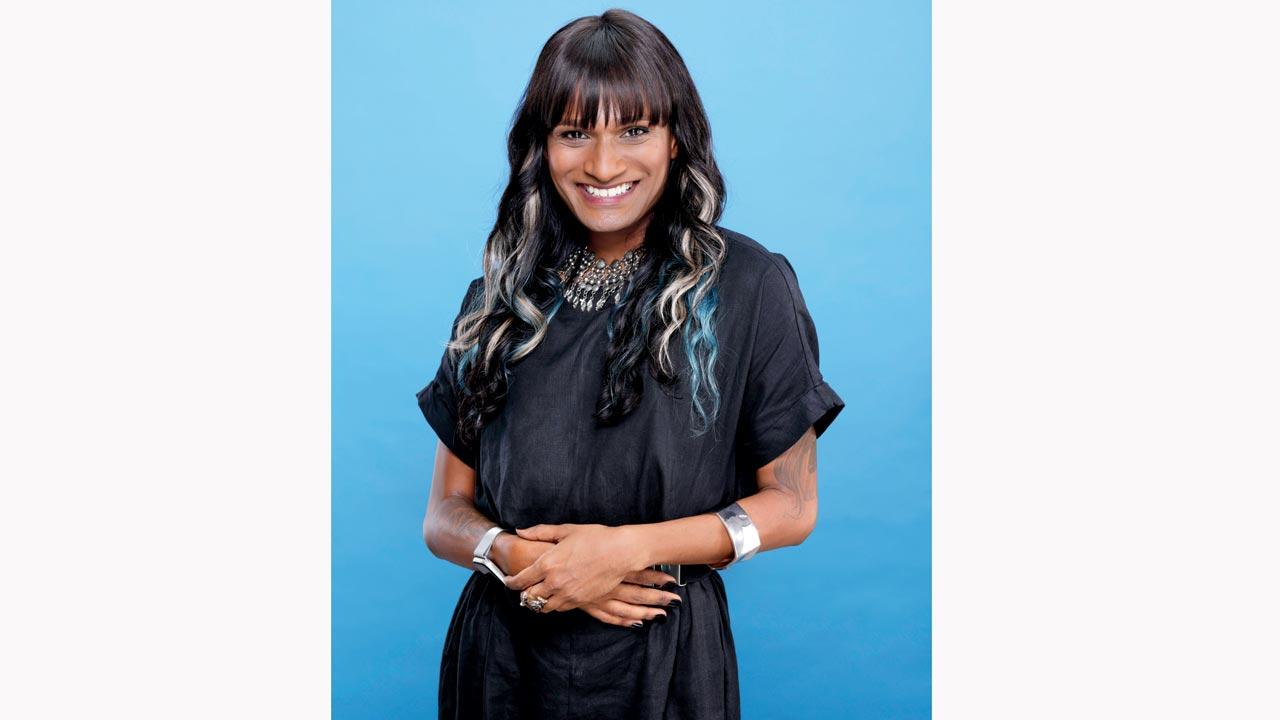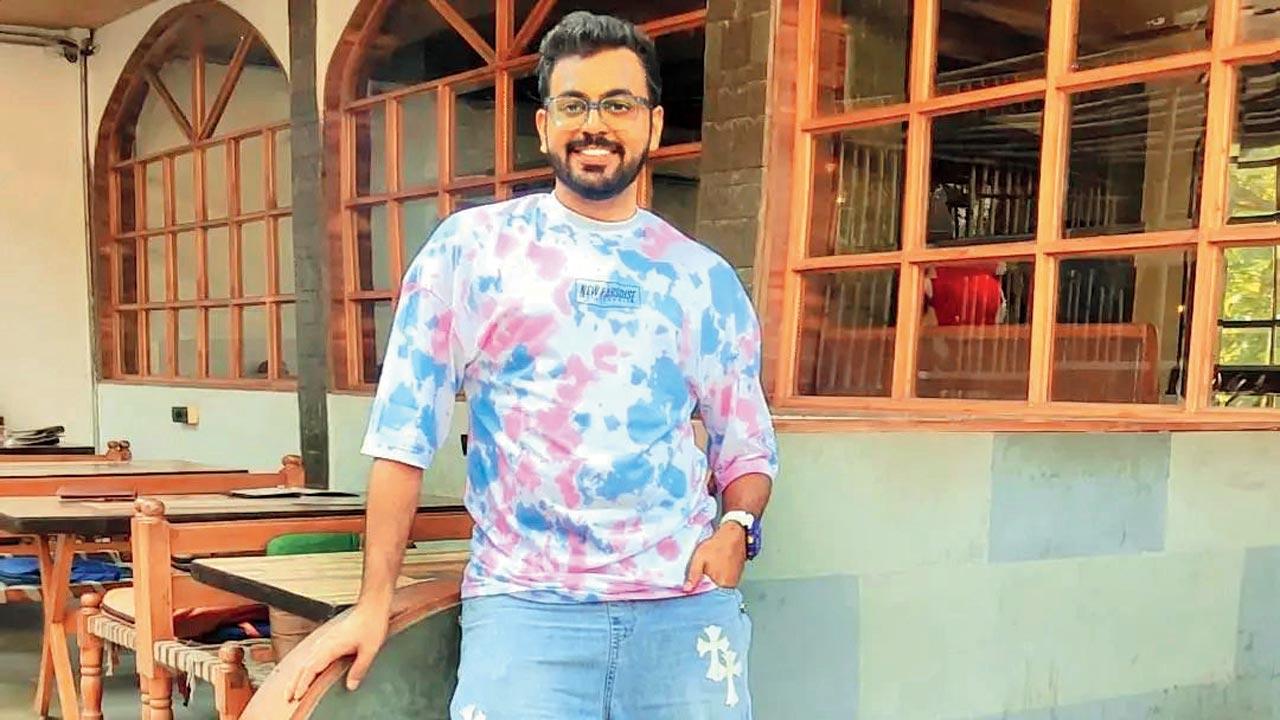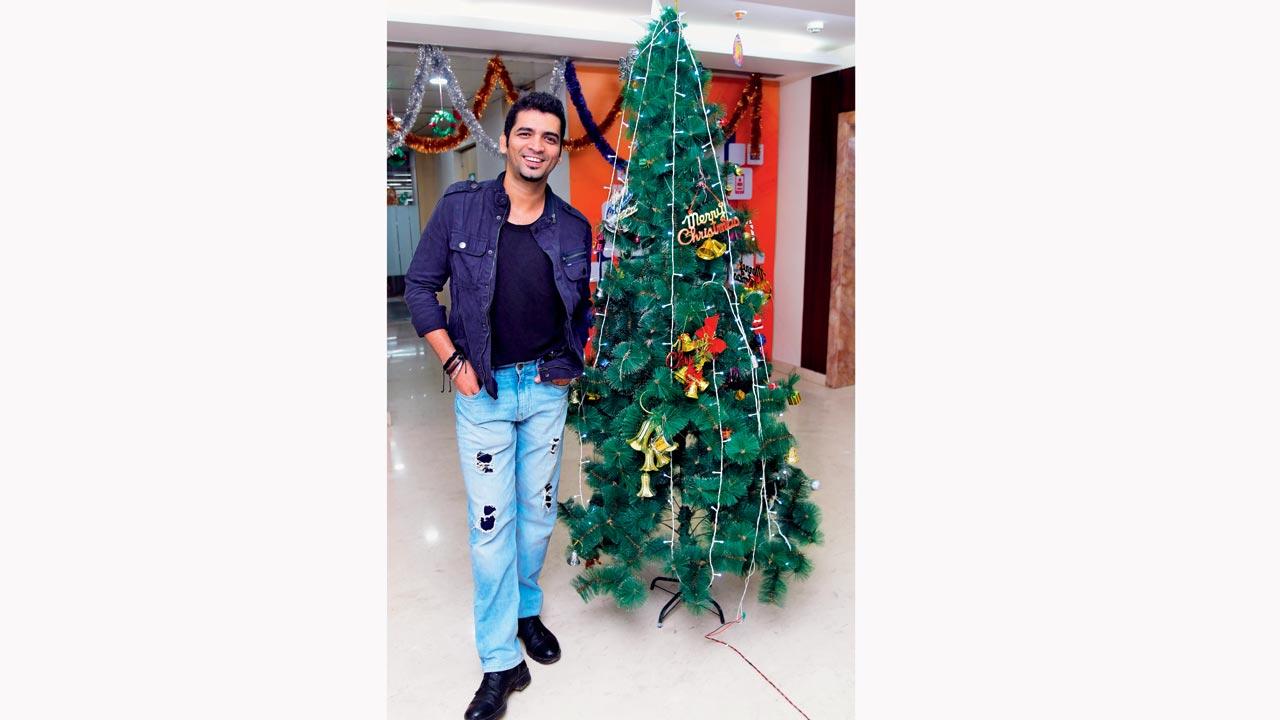Mumbai’s Catholic influencers make viewers laugh and break stereotypes through their content. This Christmas, they reflect on representing the community

Analee Cerejo, Mimicry artist. Pic/Sameer Markande
It’s that time of the year when Christian homes are filled with the aroma of plum cakes baking away to glory, or marzipan stored attractively in glass jars. Amid the bustle of Christmas, we spoke to Catholic influencers who are balancing the business of the season while also sharing nostalgic, feel-good content. We asked how they spread knowledge about their community through the characters they’ve created.
‘I think Catholics like to laugh at themselves’
Analee Cerejo, Mimicry artist
Analee Cerejo, who goes by the moniker The Chic Shopper on Instagram, says that it was her impressions of Jaya Bachchan that made her get noticed as a mimicry artist in 2022, taking her follower count from 2,000 last November to 1,000,000 this year. Along with her Jaya Bachchan impersonations, her takes on Rakhi Sawant, Janhvi Kapoor, and Catholic characters are a rage—Miss Lolita, the British-accented English convent teacher, inspired by her own sister, and “The Mom who always frowns”, based on someone in her close circle of friends and relatives.
The half-Goan, half-East Indian creator says “all her characters are inspired by people she’s known”, and that’s how she ensures they’re authentic and relatable rather than stereotypical. Growing up, it was her father who used to encourage her to mimic eccentric personalities around her, which led to her current passion of capturing people as they are. The fine line between mimicry and mockery, she says, is impersonating an individual without delving into the more sensitive aspects of their personal lives. “I get the voice down pat, the mannerisms, but I don’t create content about people’s personal lives,” she emphasises. “That’s why I also stick to creating content about our community; Catholics are quite open and chilled-out when it comes to laughing at themselves.” Speaking on staying relatable to a niche audience, Cerejo says it’s about highlighting the positive aspects and not pushing widely-held perceptions. “My content brings out the light-hearted nature of my community,” she says.
Her recent collaboration with Elton Steve Vessoaker, a long-time friend, was about the joys and madness of Christmas-time. Steve’s avatar is the beloved neighbourhood Catholic grandma. The two filmed it at his home, where preparations for Christmas sweets and decorations were in full swing. “I wear my mum’s clothes; whenever I go to her house, I come away with a bagful of outfits,” she laughs.
Ask her why her tree isn’t up yet, and she laughs, “My husband has packed the box of decorations so tightly, that I can’t open it.” When he’s down from the ship, (he is a captain in the merchant navy), they head to Hakkasan for a Christmas lunch.
‘My Nana Eugene is evergreen’

Elton Steve Vessoaker, Hairstylist
Elton Steve Vessoaker’s impersonation of Nana Eugene dates back to 2013; it was at the All Bandra Parish Zonals (the annual talent competition hosted by St Andrews Parish) where he won the Best Actor Award. The sketch in question incorporated her character—the excitable, high-pitched, sharp-tongued East Indian grandmother who loves to gossip and grumble yet is an endearing figure present in every Christian community. Interestingly, Vessoaker says it’s not about just fun, but to spread information about cultural events, activities, and news happening within the community. “Whether it was the celebrations of St Andrew’s Church on its 400th anniversary, or the revival of the Zonals after the pandemic—I’ve used Nana Eugene to make announcements,” the hairstylist quips. “She’s so interesting that people will pay attention.”
As an East Indian himself, he says Nana Eugene’s character was based on an aunty in a play, and was also influenced by the elderly women he’d seen in his surroundings while growing up. Auntie Maggy, another lovable, grandmother figure played by influencer Rozzlin Pereira also loved Nana Eugene at the theatre performance.
Ask him whether Nana Eugene has changed at all in the past decade, and he asserts: “She is a very strong character; very stuck-in her ways, and will not easily evolve with the times.” Her character is endearing, and is a way of immortalising the idiosyncrasies of aunts and grandmothers in the community. The recent video collaboration with Analee Cerejo, too, he says, is meant to encapsulate the spirit of the season: the ways in which Catholic mums and grandmothers and aunts go into full-gear.
In his household, Christmas involves shuffling between people’s households each year. This year, it’s his house. “There’s everything from vindaloo, to sorpotel, to fugiyas, and roast chicken and mutton. It’s a very elaborate food spread.”
‘I am making my own small virtual community’

Leons Thomas Joseph, Media lawyer
Leons Thomas Joseph comes from a diverse mix of backgrounds: his dad comes from a Malayali and Goan heritage, his mom is half-East Indian and half-Anglo-Indian. “I’m a soda-lemon mix,” he laughs. “I’m able to tap into Konkani, East-Indian, and Anglo-Indian humour. I live in a parish in my own family.”
He, too, embarked on his “other life” during the pandemic: playing a host of Catholic characters like Uncle D’souza, Bombay Catholic Aunty, and Catholic tuition teachers. He says he was surprised to see a lot of people relating to it, even outside the community, which is why he aimed to provide snippets of information along with the entertainment aspect. “People, even Christians themselves, feel like they have a very alien culture. What is unique about Bombay Catholics and Christians, however, is the fact that every sect has its own traditions and ways of looking at their culture,” the media lawyer says. “Although I have over 30,000 followers on Instagram, it’s more like a small virtual community.”
His aim is just to make funny, relatable content, and not commercialise it. “The crux of my videos is to enlighten people about our culture.” Uncle D’Souza is up to his antics, like getting engrossed in the Bandra fair, but we also see what’s available at the fair and snippets of history as well.
We’ve caught him during a busy week; he says he is living half-inside the church, prepping for the crib and carolling. “Since I’m from such a mixed-bag of cultural backgrounds, it’s hectic,” he explains. “We have a tradition at my home before starting the sweets, for example, rose-cookies—we roll the first ball of flour into the shape of a cross, and fry that, and place it on the altar as an offering to Christ.”
‘I want to act in a villainous role’
 Pic/Shadab Khan
Pic/Shadab Khan
Walter D’souza, Konkani tiatrist
Konkani tiatrist and actor Walter D’souza aims to portray Catholic characters through the lens of an actor and not merely for funny content. He is known for his portrayal of Uncle Pascal Pinto, the jute hat, red-singlet, and moustache-sporting uncle whom every Catholic has come across in their neighbourhood. The 1983 Marathi movie, Gupchup Gupchup, which stars Ashok Saraf, served as inspiration for this larger-than-life character. “That was the first time I saw a Goan character in a Marathi movie,” the actor, who hails from Kankavli, explains. “I wanted to create a personality of my own and use it to show my acting.”
Pinto is also heavily based on a particular uncle of his, who has the same mannerisms—loud, talkative, and speaking in that sing-song Konkani accent. D’souza launches into the character, his demeanour shifting: a drawling tone of voice, bold movements, and a distinctive style of talking, drawn from his observations of Marathi-Konkani Christians. “There are some people who say that my videos are stereotyped, but I try to express the characters and personalities I’ve seen in real life,” he says.
His mother and sister, whom he lives with in Jogeshwari, suggest ideas and storylines to him. The most important part, he says, is capturing the unique idiosyncrasies of the character in that 30-second space one has on social media—which is why they need to be larger than life. That might come across as abrasive, but to him, it’s all in good fun.
It’s a busy time for them at home, in the run-up to Christmas week. He says Christmas is synonymous with a wine cake brought from the age-old Viviana Bakery in Santacruz. He recalls standing in line at the bakery to buy their cake, a tradition that they’ve followed for nearly 10 years. Friends and family clamour to taste the
cake. Apart from that, there are the usual favourites: dodol, doce, neuris, and savoury items like shankarpali and chakli, which comes from his family’s half-Maharashtrian heritage.
Apart from comedy and acting, he enjoys Malvani and Konkani literature, which he says is underrated. He hopes to delve into more villainous, morally-grey characters in the future: “It would be interesting to see Pascal Pinto as a villain.”
 Subscribe today by clicking the link and stay updated with the latest news!" Click here!
Subscribe today by clicking the link and stay updated with the latest news!" Click here!










